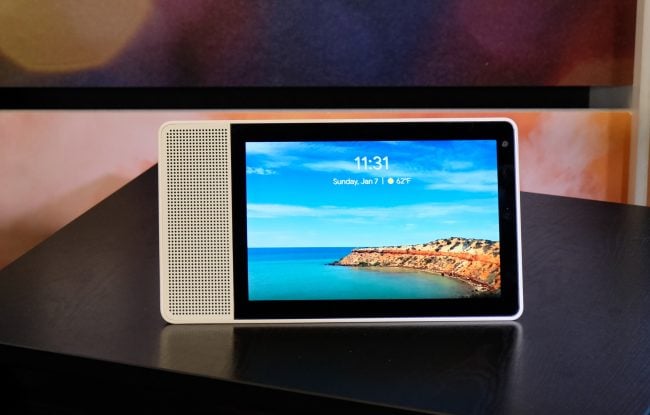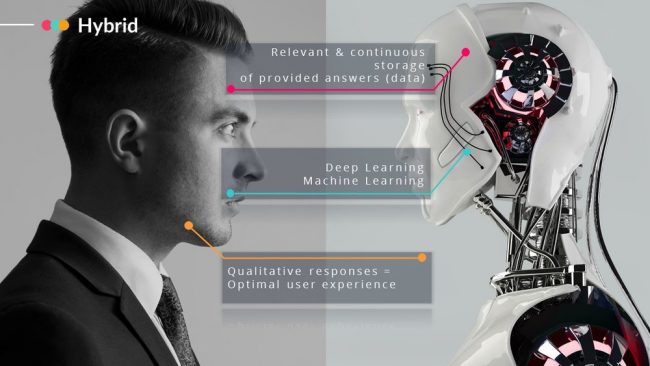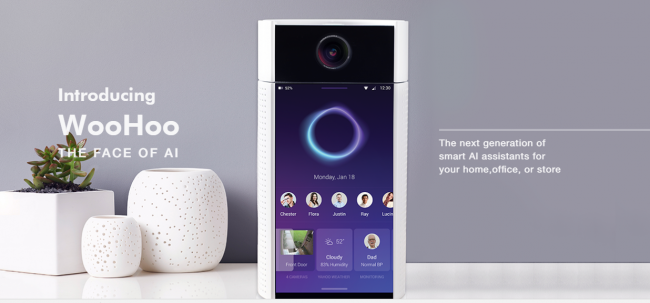For those of you who don’t remember “Pee-Wee’s Playhouse”, one of the running gags involved a “secret word”. Basically, if anyone said the “secret word” everyone was supposed to scream. I would suggest playing that with CES 2018 and “digital assistant“, but we’d all lose our voices and our hearing within an hour.
We’ve seen several variations on the digital/artificial intelligence assistant so far at CES Unveiled and other pre-show previews. Many companies, like Lenovo, are integrating Alexa and Google Assistant into various products. So step one in the AI assistant domination is piggybacking on existing digital assistants, and just giving them more opportunity to interact with users. This isn’t too crazy, and it makes sense coming out of a holiday season where Google Home and Amazon Echo variations dominated shopping lists. People are getting more and more comfortable with these two platforms, so many companies are looking to step into these existing ecosystems.
Then there are the ambitious souls who think they can reinvent the wheel. Wiidii calls themselves the “World’s 1st Hybrid Personal Assistant”, and they pair an AI assistant with a live concierge service. Right now they are aimed at businesses rather than individuals, so their vision is to effectively make travel and business run more smoothly; finding the right hotel, booking reservations for restaurants, and arranging all transport, for example, all from one request to set up a trip. It is an interesting idea, but it feels like something that could be easily disrupted by Amazon or Google simply offering the same thing. They describe it as being able to use machine learning with actual people to optimize your experience, but it feels a bit like they’re trying to reinvent the wheel when the wheel is already being sold in the mass market.
Woohoo, calling themselves “the face of AI”, has a similar uphill battle. The specs for the WooHoo sound good; HD camera with motion detection, facial recognition, AI voice assistant, 4G LTE, JBL Harman speakers. All these sound amazing, but their only unique feature is being rolled into one device. A consumer who wants an AI assistant can build the same concept with Nest Cams, a few Google Home minis, and the upcoming Lenovo Smart Display, and those have the advantage of seamless integration with someone’s existing Google Assistant. So, again, we have a cool idea but one that gambles on an unlikely slowdown from the top players in the digital assistant marketplace.
We also talked to a few companies who have HomeKit integration or hope to integrate more with Apple’s future home offerings. These may pan out, but it feels a bit like these companies are all reenacting a technology-themed “Waiting for Godot”. Apple has already delayed HomePod once, and they’re significantly behind Amazon and Google in terms of adoption. It’s not impossible for Apple to step in and dominate, but the longer these companies wait for Apple to save them, the longer their competition is happily joining up with Amazon and Google and collecting customers who are equally happy. Everyone wants a piece of this new market, and the question for these companies is whether they should wait for Apple or join with the existing players … but if Apple doesn’t act soon, there’s not going to be too many places left waiting for them.
Everyone wants to be your digital assistant, but just tossing one into your product isn’t going to make you stand out in a sea of electronic voices all saying “Good morning, how can I help you?” in a creepy, yet helpful robotic monotone!




And it is branching out into the automotive platform as well. Toyota is leading the press release barrage saying it will begin integrating digital assistant into its vehicles soon and many others have already done that or will follow shortly. Works great if your life/infrastructure allows for digital assistant integration…falls flat if not.